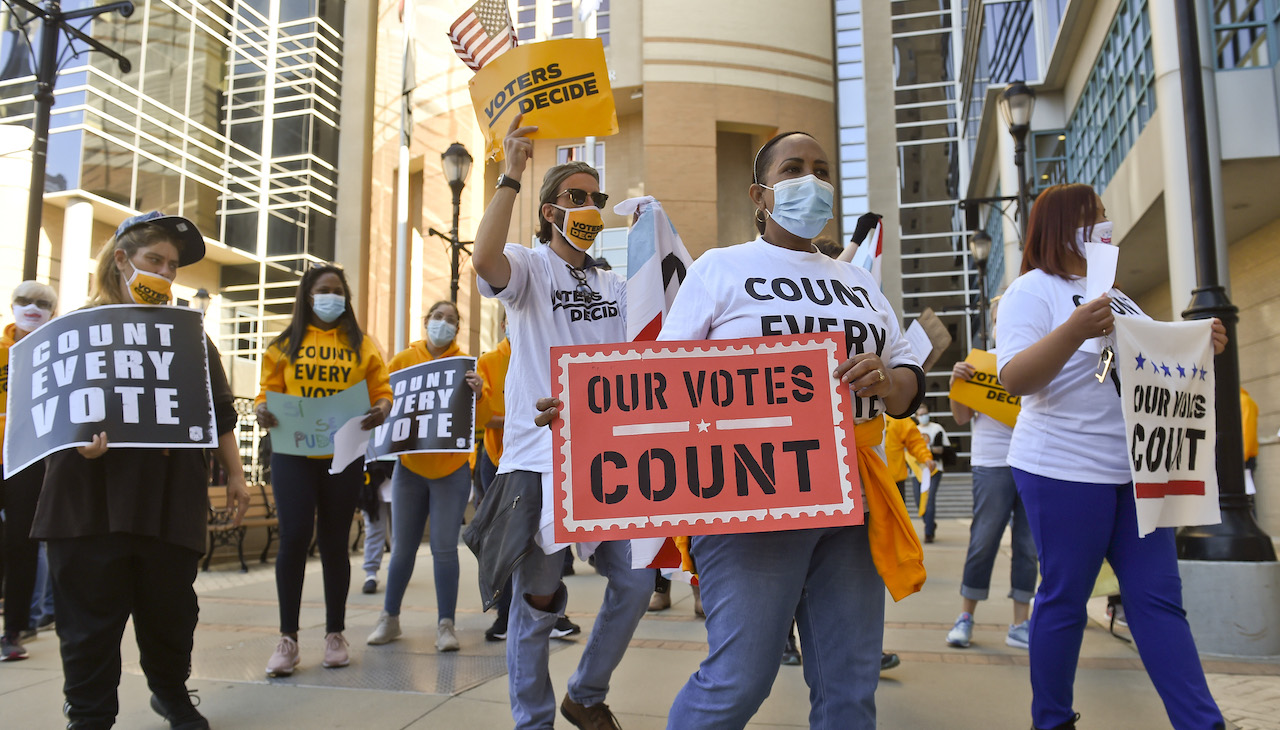
Pennsylvania’s Hispanic population is closely observing policy-making, new poll finds
A survey of the Hispanic population shows a stark contrast between crucial issues that could make or break a candidate’s platform — many lean progressive.
A UnidosUS poll released last week that surveyed PA’s Hispanic bloc found that while many aren’t voting, they’re engaged in the political conversation. This demographic is paying close attention to key issues that could sway them toward a candidate favorite.
Although Hispanics make up a sizable portion of Pennsylvania’s overall population, only 61% of those sampled said they are sure to vote in the upcoming general election. The survey’s findings showed they’re split on critical policy issues, and there are caveats.
“Latinos in Pennsylvania are paying attention to the midterms, with 61% saying they are 100% certain to vote in November. But that number leaves a lot of room for growth,” said Irving Zavaleta, National Programs Manager at Mi Familia Vota, a nonprofit dedicated to driving Latino voter engagement.
He went on to note that while Hispanics are paying close attention, they aren’t entirely convinced.
“Latino voters’ interest in participating in the midterms is not a guarantee of voter turnout. To turn out Latino voters, both parties must invest in reaching our community like they would any other valued constituency,” said Zavaleta.
Inflation, crime and gun violence, and jobs have always been top of mind for Hispanics, and historical data shows those will remain concerns throughout all elections, but in recent months, as issues become increasingly politicized, they are sure to become salient among these communities.
Abortion, for example, made the top five of essential issues for Hispanics for the first time, according to the survey, and 73% of the sampled group said it should remain legal. The study showed that bans on abortion are a deal breaker for 41% of surveyed individuals.
In Pennsylvania, sitting Governor Tom Wolf is at his term limit, and the contenders fall on opposite ends of the ideological spectrum. PA Attorney General Josh Shapiro has maintained abortion would remain legal throughout his campaign and committed to continue Wolf’s work in blocking Republican-led legislation by veto.
State Sen. Doug Mastriano, the Republican nominee, has firm views opposing the medical procedure. During an April debate, he called abortion a “national disaster.”
However, since the GOP primary, Mastriano has quieted down his outspokenness toward abortion, the Pennsylvania Capital Star reported. This notable shift concerns medical professionals across the Commonwealth, saying his absent opinion could deceive voters.
Historically, Mastriano has made his views clear on the matter, but Hispanics could be swayed to reconsider if the issue lessens in weight over other policies that matter most. However, the results overall pointed out that 83% repudiate white supremacy, while 48% said any involvement in the Jan. 6 riots is a deal-breaking issue.
Mastriano was among the mob of Trump supporters on Capitol grounds, though not at the White House itself.
Along party lines, the data is clear
Research shows that, in general, Hispanics lean towards Democrats and believe the party to be better equipped to handle U.S. business. On values, PA Hispanics are aligned with the Democratic party, but gaps are at play.
Although there is an overwhelming blue majority, there are margins where the participants are either not aligned with any party or do not have enough information to make an informed decision. Many also align with both parties.
RELATED CONTENT

If constituents rally to either party based on critical issues, it could prove to be a significant shift on election day.
But these sentiments lie in all political races. Shamaine Daniels, a congressional candidate and political underdog, observed a rise in the polls as her opponent, an incumbent, plunged.
Daniels had little to no notability among PA voters, but key factors played a big role in getting recognition. A majority of voters disavowed Sen. Scott Perry's involvement in Jan. 6 events, which played in Daniel’s favor.
Additionally, once voters got wind of her views on abortion, she rose to 49% of favorability, in line with UnidosUS’s findings. The poll, run by Public Policy Voting, extracted its results from a constituency often overlooked in the commonwealth, independents, who favored Daniels.
Pennsylvania law does not allow independent voters to cast a ballot during primaries unless registered with a party. Activists working to overturn the law say it discourages independents from participating in elections and carry a favored candidate to the general election.
For Julia Rivera, a Chief External Affairs Officer at Congreso de Latinos Unidos, voter engagement is non-negotiable.
“I think it’s critical to continue bringing attention to issues that are important to our community and to remind not only candidates, but also the community, about the diverse perspectives and power of Latinos as voters to get folks motivated to go to the polls,” she said.
When asked by AL DÍA if UnidosUS believed this was the case for independent Hispanics, they said the independent population can still vote in the general election.
AL DÍA reached out to clarify what that means for independents who don’t vote.










LEAVE A COMMENT: